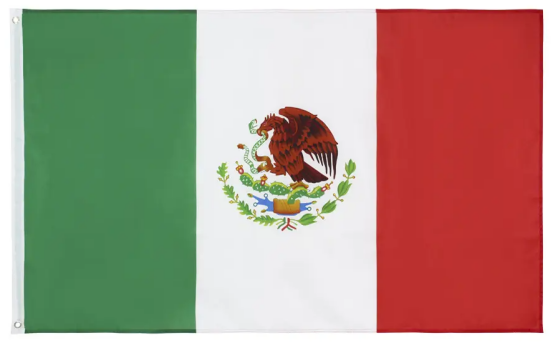What is NOM certification?
The NOM certificate is one of the necessary conditions for market access in Mexico. Most products must obtain a NOM certificate before they can be cleared, circulated and sold in the market. If we want to make an analogy, it is equivalent to Europe’s CE certification and China’s 3C certification.
NOM is the abbreviation of Normas Oficiales Mexicanas. The NOM mark is a mandatory safety mark in Mexico, which indicates that the product complies with the relevant NOM standards. The NOM mark applies to most products, including telecommunications and information technology equipment, household electrical appliances, lamps and other products that are potentially hazardous to health and safety. Whether they are manufactured locally in Mexico or imported, they must comply with relevant NOM standards and ship ticket marking regulations. Regardless of whether they have been certified by the United States, Canada or other international standards before, Mexico only recognizes its own NOM safety mark, and others National safety markings are not recognized.
According to Mexican law, the NOM licensee must be a Mexican company responsible for product quality, maintenance and reliability (that is, the NOM certification must be in the name of a local Mexican company). The test report is issued by a SECOFI-accredited laboratory and reviewed by SECOFI, ANCE or NYCE. If the product meets the relevant regulatory requirements, a certificate will be issued to the manufacturer or exporter’s Mexican representative, and the product can be marked with the NOM mark.
Products subject to NOM compulsory certification are generally AC or DC electronic and electrical products with a voltage exceeding 24V. Mainly suitable for product safety, energy and thermal effects, installation, health and agricultural fields.
The following products must obtain NOM certification before being allowed to enter the Mexican market:
① Electronic or electrical products for home, office and factory use;
②Computer LAN equipment;
③Lighting device;
④Tires, toys and school supplies;
⑤Medical equipment;
⑥Wired and wireless communication products, such as wired phones, wireless phones, etc.
⑦Products powered by electricity, propane, natural gas or batteries.

What are the consequences of not doing NOM certification?
①Illegal behavior: According to Mexican laws, certain products must undergo NOM certification when sold in the Mexican market. Without legal NOM certification, selling this product would be considered illegal and may result in fines, product recalls, or other legal consequences.
②Market access restrictions: Mexico’s market regulatory agencies may supervise products without NOM certification and restrict their sales in the Mexican market. This means products may not be able to enter the Mexican market, limiting sales and market expansion opportunities.
③Consumer trust issue: NOM certification is an important symbol of product quality and safety in the Mexican market. If a product does not have NOM certification, consumers may have doubts about its quality and safety, thereby reducing consumer trust in the product.
④Competitive disadvantage: If a competitor’s product has obtained NOM certification but your own product does not, it may lead to a competitive disadvantage. Consumers are more likely to purchase certified products because they are perceived to be more compliant with quality and safety standards. Therefore, if you plan to sell products in the Mexican market, especially if it involves products that require NOM certification, it is recommended to carry out NOM certification to ensure legality, meet market requirements, and gain the trust of consumers.
Post time: Oct-23-2023




